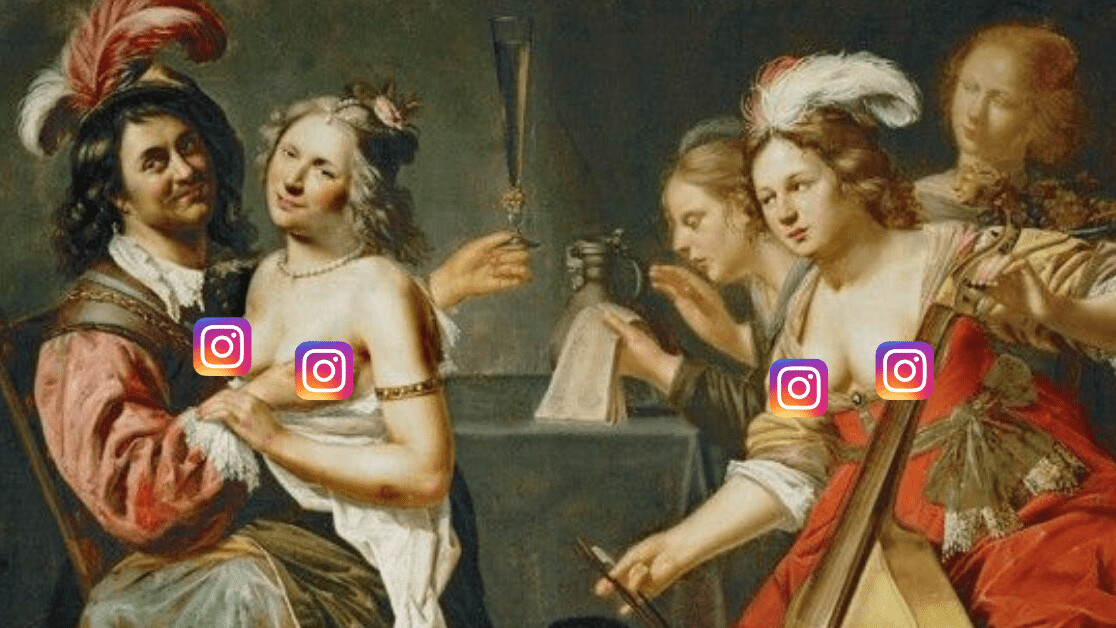
Over the past year, social networking platforms Facebook and Instagram have made it almost impossible for NSFW artists to exist on the platforms — from banning any discussion around “sexual preference,” “sexual roles,” “breasts,” and “buttocks” to the tech giant’s latest stunt in restricting solicitation that involves “sexual emoji or emoji strings.”
Alongside strict guidelines, hundreds of porn stars and sex workers have claimed Instagram have removed their accounts in the past year, with many saying they’re being held to a different standard than mainstream celebrities. The Adult Performers Actors Guild (APAG), a federal-recognized union for workers in the US film industry, has gathered a list of over 1,300 performers who claim their accounts have been unfairly deleted by the platforms moderators for ‘violations of the site’s community standards’ — despite not showing any nudity or sex.
As reported by the BBC, APAG’s president, Alana Evans, said: “I should be able to model my Instagram account on Sharon Stone or any other verified profile, but the reality is that doing that would get me deleted. They discriminate against us because they don’t like that we do for a living.”
Even when models don’t show nudity or write anything that the platform considers NSFW, the union pointed out various cases were accounts were censored despite not violating any of this site’s community guidelines.
My minds blank, this wasn’t even up for a minute pic.twitter.com/94CmFSI2yR
— Feet Preacher⚡️ (@SabrinaTheBunny) October 17, 2019
Double standards on Facebook’s platforms
As a platform that blocks the phrase “men are trash,” yet allows “women are trash” on its platform, it should come as no surprise that Facebook and its subsidiary company Instagram don’t celebrate women taking ownership of their own body.
There are painfully obvious double standards on the social networks according to Erika Lust, an award-winning Swedish erotic film director. “The Dan Bilzerians of the world are free to keep sending their misogynistic message that women are only accessories to their lavish lifestyle. When Dan posts a picture using a naked woman as a table to rest his trophy, he’s not censored,” Lust told TNW.
“But when Rupi Kaur posts a photo of her fully clothed in bed with a period stain she is censored… what message does this send? It tells me that we live in a male-dominated world that doesn’t want the status quo changed, where media allows commodification of women but keeps censoring their bodies when they take ownership of it,” Lust added. “What stops any men from doing this in real life if this is the message social media keeps sending out?”
In recent months, campaigners have called out the platform for “excessive censorship” after pole dancer and blogger “Bloggeronpole” had her posts censored and restricted from ‘search’ for containing ‘#poledancing’ and ‘#femalefitness.’ Although Instagram later apologized and changed its policy around censored hashtags, it continues to block or restrict tags that may be used to share content in violation of its guidelines.
“Celebrities keep their pictures, but we can’t even post a video of us working out in a bikini,” Bloggeronpole told the BBC. “If you are using your body in one way or another, even for education or to promote body positivity, you can’t do it anymore because of the way social media is being run.”
If social media continues to purge NSFW accounts and take control of people’s sexual expression, the future looks bleak. Also, Instagram is missing out on an opportunity to facilitate and support important conversations — particularly as discussions and notions of sexuality are becoming more nuanced as time moves forward.
There are ways to filter content on the platform to keep things family-friendly for those who want it, but silencing artists and sex-positive brands seems like a regressive and myopic move.
Get the TNW newsletter
Get the most important tech news in your inbox each week.





